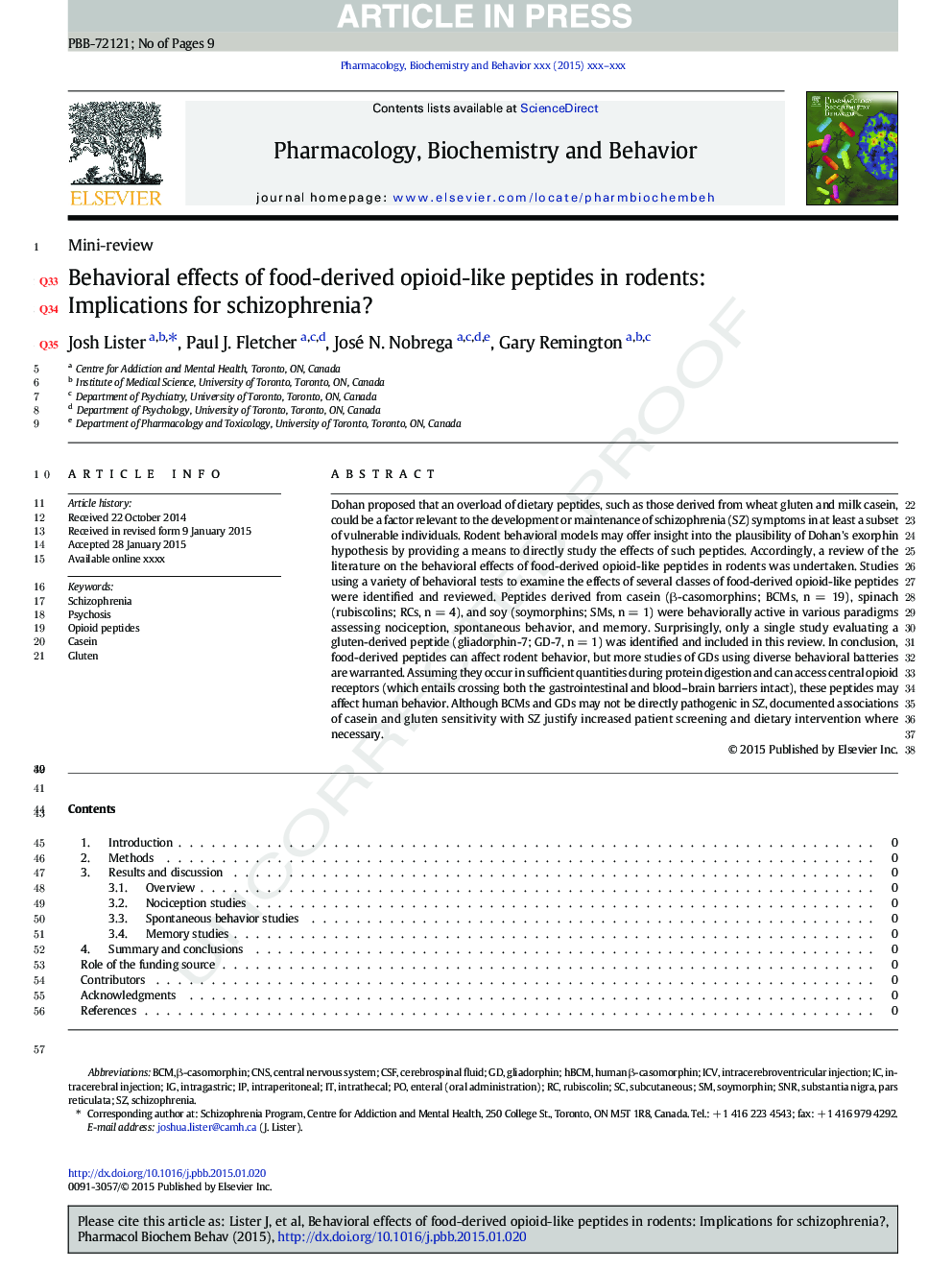| Article ID | Journal | Published Year | Pages | File Type |
|---|---|---|---|---|
| 8350559 | Pharmacology Biochemistry and Behavior | 2015 | 9 Pages |
Abstract
Dohan proposed that an overload of dietary peptides, such as those derived from wheat gluten and milk casein, could be a factor relevant to the development or maintenance of schizophrenia (SZ) symptoms in at least a subset of vulnerable individuals. Rodent behavioral models may offer insight into the plausibility of Dohan's exorphin hypothesis by providing a means to directly study the effects of such peptides. Accordingly, a review of the literature on the behavioral effects of food-derived opioid-like peptides in rodents was undertaken. Studies using a variety of behavioral tests to examine the effects of several classes of food-derived opioid-like peptides were identified and reviewed. Peptides derived from casein (β-casomorphins; BCMs, n = 19), spinach (rubiscolins; RCs, n = 4), and soy (soymorphins; SMs, n = 1) were behaviorally active in various paradigms assessing nociception, spontaneous behavior, and memory. Surprisingly, only a single study evaluating a gluten-derived peptide (gliadorphin-7; GD-7, n = 1) was identified and included in this review. In conclusion, food-derived peptides can affect rodent behavior, but more studies of GDs using diverse behavioral batteries are warranted. Assuming they occur in sufficient quantities during protein digestion and can access central opioid receptors (which entails crossing both the gastrointestinal and blood-brain barriers intact), these peptides may affect human behavior. Although BCMs and GDs may not be directly pathogenic in SZ, documented associations of casein and gluten sensitivity with SZ justify increased patient screening and dietary intervention where necessary.
Keywords
Related Topics
Life Sciences
Biochemistry, Genetics and Molecular Biology
Biochemistry
Authors
Josh Lister, Paul J. Fletcher, José N. Nobrega, Gary Remington,
